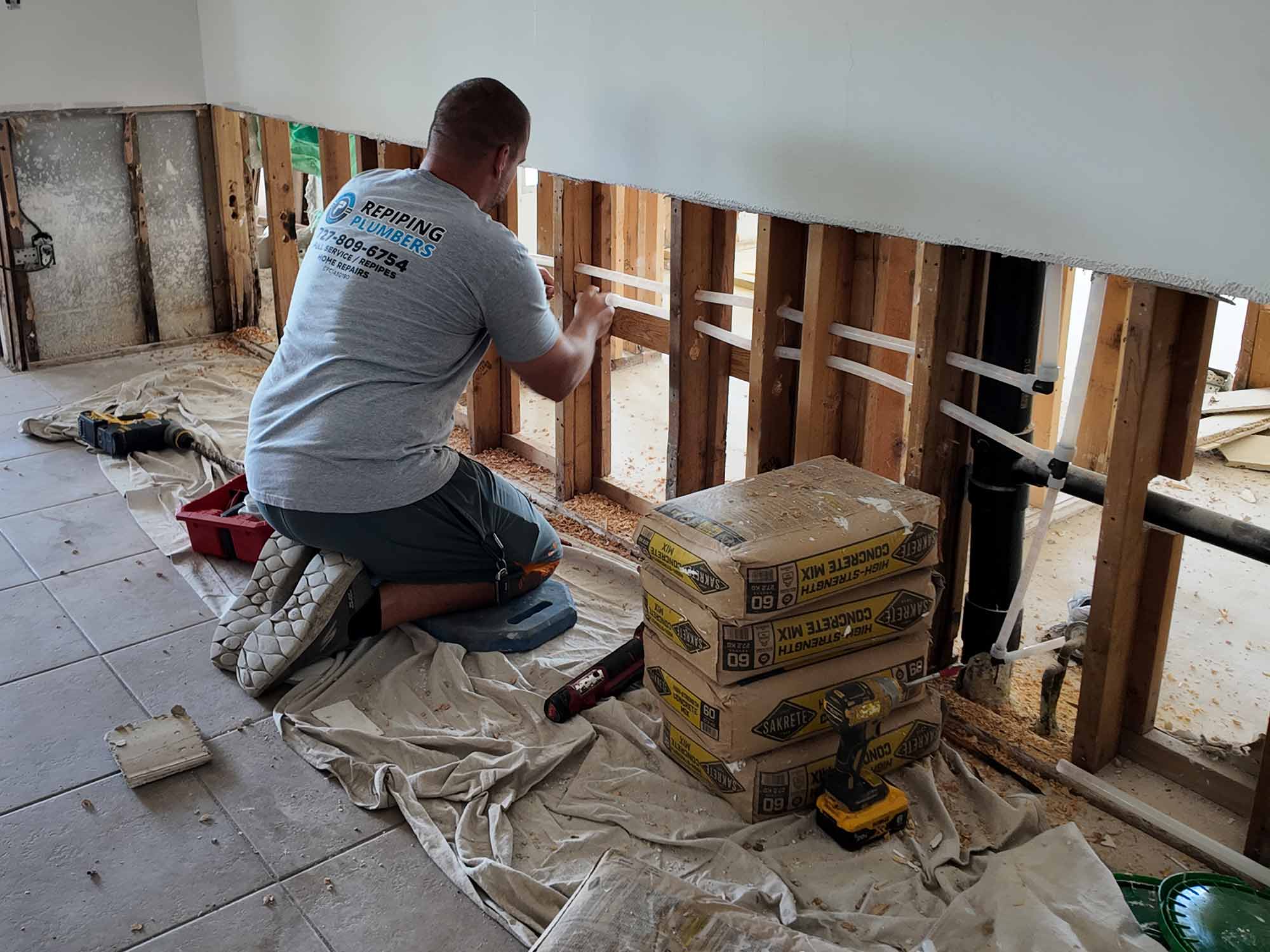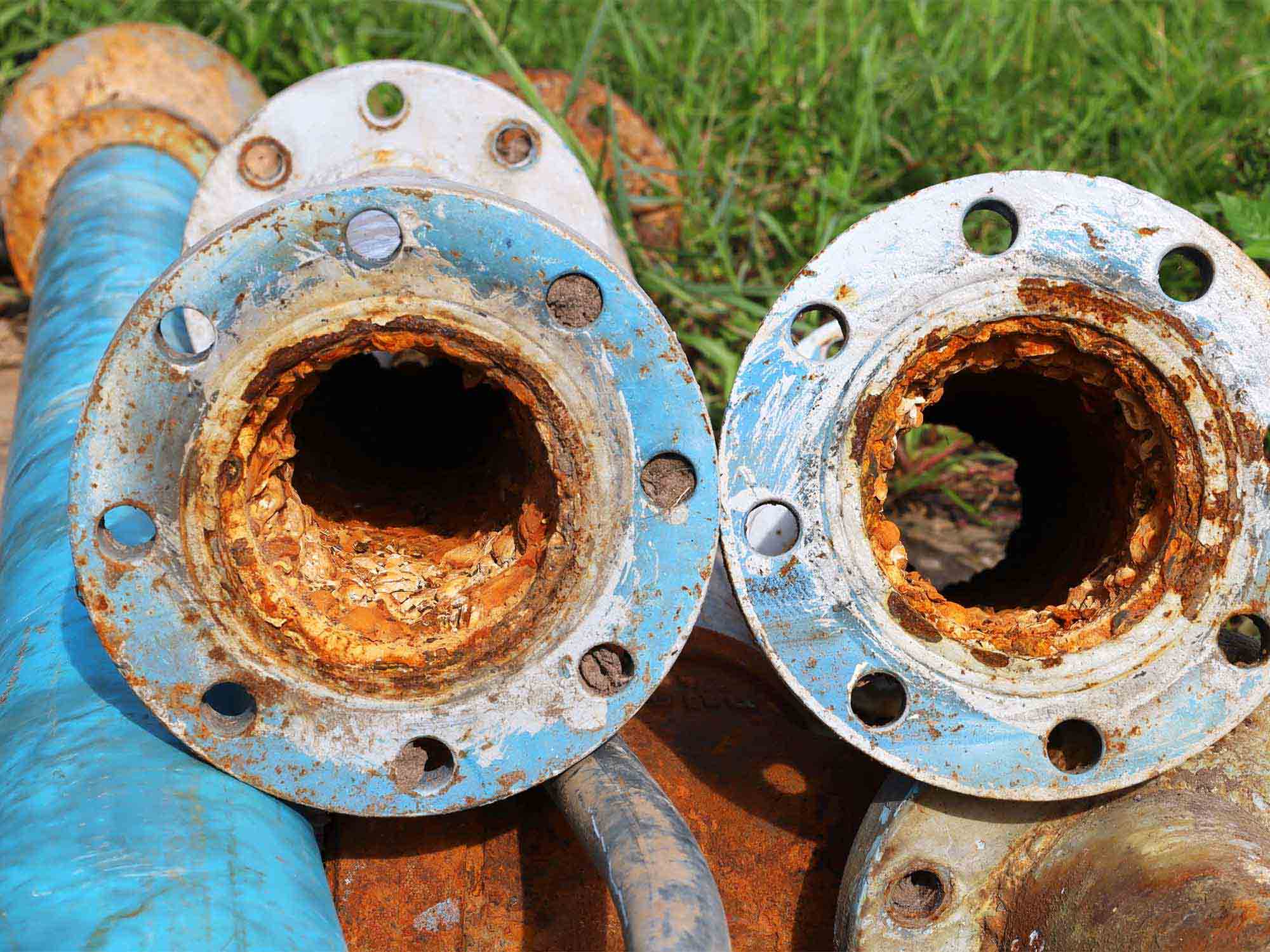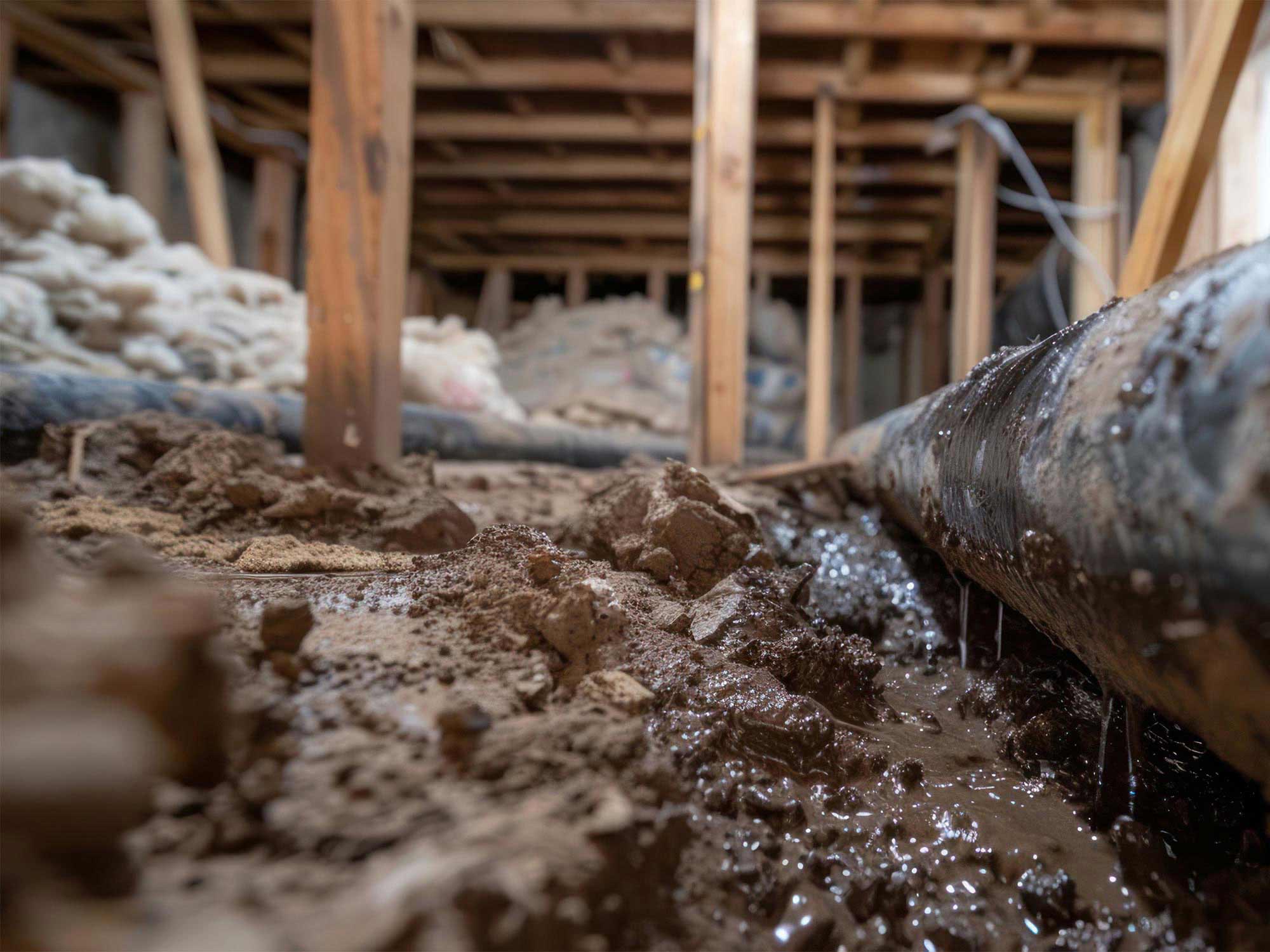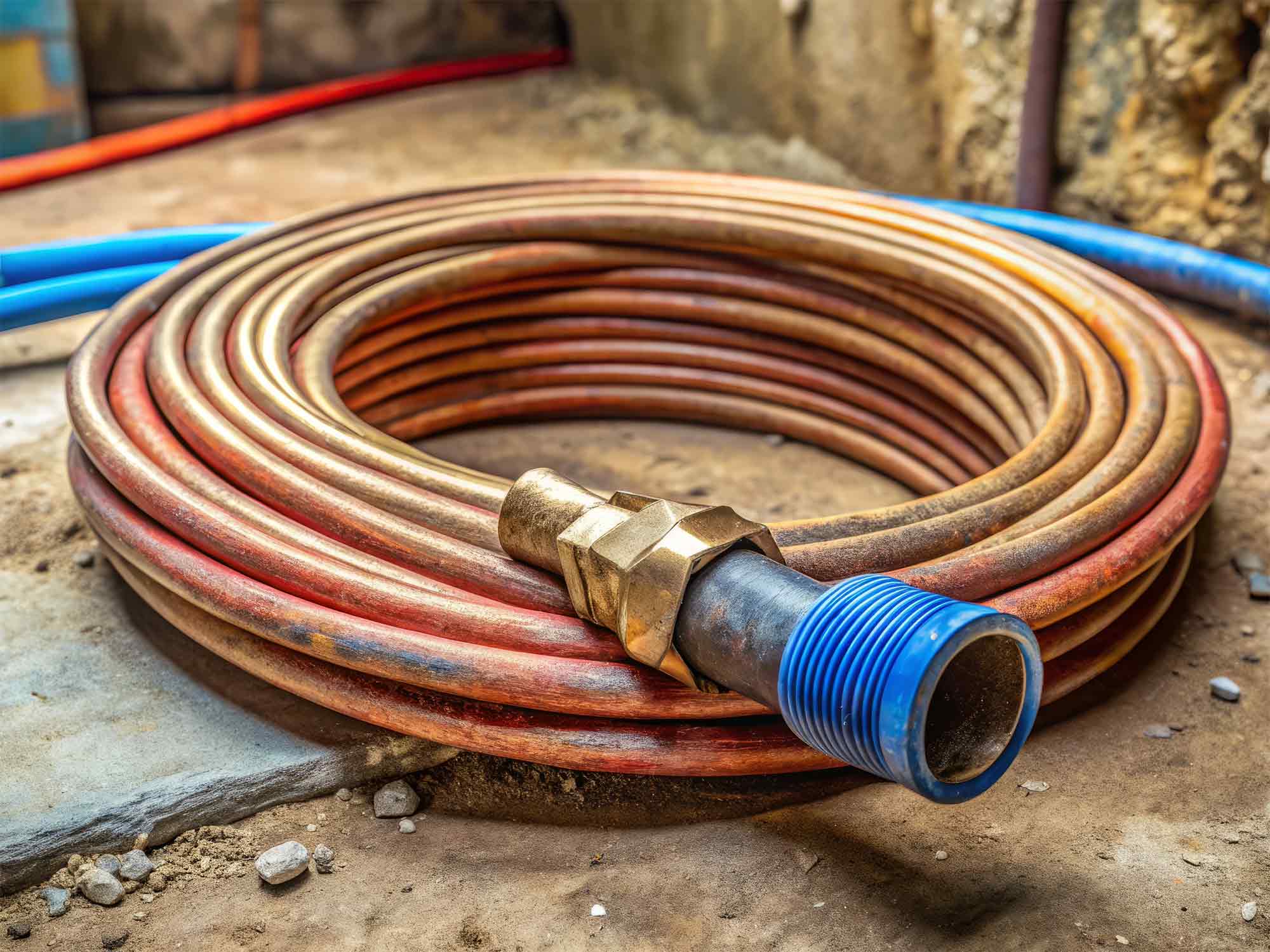As a homeowner, it’s easy to overlook your plumbing system until something goes wrong. If it ain’t broke, don’t fix it, right? Unfortunately, by the time you notice issues like low water pressure or leaks, it might already be too late to prevent further damage. One of the most critical steps in maintaining your home’s plumbing system is knowing when it’s time for a professional home repipe.
Repiping your home is a significant investment, but it can save you money and headaches in the long run. In this blog, we’ll explore the signs that indicate it may be time for a home repipe, and how to determine if this major plumbing project is the right solution for your home.
What Does It Mean to Repipe A House?
Repiping refers to the process of replacing the existing plumbing system in your home. This typically involves replacing old pipes with new ones made from more durable materials, such as copper or PEX (cross-linked polyethylene). While this project can be costly, it’s often necessary when pipes begin to deteriorate or fail.
So, how do you know when it’s time to take the leap and invest in repiping your house? Let’s take a look at some common signs that may indicate the need for a home repipe.
1. Frequent Leaks and Pipe Damage
One of the most obvious signs that your pipes are in trouble is frequent leaks. If you’ve noticed multiple leaks occurring in your home, especially in areas where pipes are hidden behind walls or under the floor, it’s a clear indication that your plumbing system is deteriorating. Over time, pipes corrode, weaken, and crack, leading to leaks that can cause water damage to your home.
While a simple pipe repair might solve the problem temporarily, if leaks are happening regularly, it could be a sign that it’s time for a home repipe. Constant repairs can add up, and continuing to patch the system could be a short-term solution that leads to bigger issues down the line. Repipe plumbers can help you evaluate the situation and provide you with a cost estimate for a whole house repipe.
2. Low Water Pressure
Low water pressure is another common sign that your plumbing system needs attention. If you’ve noticed that your water pressure has dropped significantly, it could be due to pipe corrosion, mineral buildup, or blockages inside the pipes. Older pipes, especially galvanized steel or iron pipes, can accumulate rust or scale over time, restricting water flow and reducing pressure.
In some cases, repiping a house can resolve these issues by replacing old, clogged pipes with new ones that allow for better water flow. If the problem persists despite multiple attempts to clean or repair the pipes, it may be time for a complete replumbing house job. Consider consulting repiping specialists near you to get an accurate diagnosis.
3. Discolored or Rusty Water
Have you noticed that your tap water is discolored, rusty, or has a metallic taste? This is often a sign of corroded pipes, especially if your home has older plumbing made from galvanized steel or iron. As these pipes corrode, they can cause sediment and rust to enter the water supply, making it unsafe to drink and unpleasant to use.
If you experience discolored water, especially when using hot water, it’s a good indicator that your pipes have reached the end of their lifespan. Repiping your house with new materials like copper or PEX can restore your water quality and give you peace of mind. A PEX repipe can be a great option, offering durability and an overall lower repipe cost. P
Pro Tip: During inspection, be sure to ask your plumber about repiping house with PEX vs. copper.
4. Age of the Plumbing System
The age of your plumbing system is a key factor in determining when to repipe. If your home was built more than 50 years ago, it’s likely that the plumbing is made from outdated materials like galvanized steel or lead, both of which are prone to corrosion and failure. While lead pipes are no longer allowed in modern plumbing, galvanized steel pipes were once commonly used but are now known to have significant issues with rust and wear.
If your home has old pipes, it’s a good idea to have them inspected regularly. In many cases, the pipes may need to be replaced entirely to ensure the safety and efficiency of your plumbing system. A proper repipe company or even repipe specialists can help you assess whether a home repipe is necessary.
5. Increased Water Bills
A sudden spike in your water bills without any clear explanation could be a sign of an issue with your plumbing system. If your pipes are leaking or have developed small cracks, water may be slowly escaping, leading to increased water usage and higher costs. While small leaks might not seem like a big deal, they can add up over time.
If you notice that your water bills are consistently higher than usual, even though you haven’t increased your water usage, it’s worth investigating the cause. In many cases, a whole house repipe will help reduce leaks and prevent wasted water, ultimately saving you money on your utility bills. Consult a plumbing repipe expert near you expert to evaluate the issue.
6. Noisy Pipes
If you hear strange noises coming from your pipes, such as banging, rattling, or whistling sounds, it could indicate that something is wrong with the plumbing. Noisy pipes are often a result of air in the pipes, water hammer, or pipes that are too tightly secured, causing them to move when water flows through them. In some cases, these issues may be a sign of a deeper problem, such as a failing pipe or blockages.
While these noises can sometimes be fixed with adjustments or repairs, if they continue or worsen, it may be an indicator that your entire plumbing system needs to be replaced. Repiping can resolve these issues and restore quiet, efficient water flow throughout your home. If you’re hearing strange sounds, consider contacting repiping specialists for an assessment.
7. Slow Drains or Clogs
While clogged drains are a common household nuisance, if you find that your drains are constantly clogging, or the issue is widespread throughout the home, it could be due to old or deteriorating pipes. Over time, pipes can become clogged with mineral buildup, grease, and debris, which can lead to slow drainage and frequent blockages.
If you’ve tried everything from drain cleaners to snaking the drains and the problem persists, it might be a sign that your pipes are damaged or no longer functioning properly. Repiping with new pipes can help prevent these issues from recurring. Repiping companies most likely can offer PEX repipe solutions, which are resistant to clogs and provide better flow.
8. Increased Risk of Water Damage
If your pipes are old or corroded, they’re more likely to burst or leak, which can lead to water damage in your home. Water damage can cause structural issues, mold growth, and the deterioration of your walls, floors, and ceilings. Repiping a house is an investment that can help prevent the costly repairs that come with water damage.
When to Call in the Repipe Plumbers
If you’re experiencing any of these signs, it’s time to call a professional plumber for an inspection. The best re pipe specialists may even offer free consultations so you don’t have to sweat the first visit.
Repipe specialists can assess the condition of your pipes and help you determine whether it’s time for a complete home repipe or if repairs will suffice. A plumber will also be able to advise you on the best materials for your new plumbing system and provide an estimate for the repipe cost.
Final Thoughts
If you’re unsure about whether it’s time for a home repipe, reach out to a repipe expert from the Repiping Plumbers today! Our team can confidently assess the situation and provide the right recommendations for your home (or office).
Call us now at (727) 271-9943 to get started before any issues you’re experiencing get worse!




